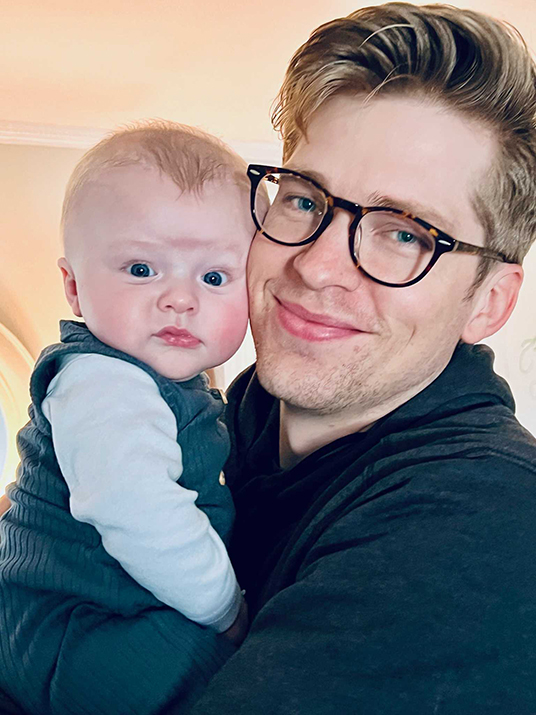Andy McTeague ’12

DEGREES
B.S. in chemistry; Ph.D. in organic chemistry, Massachusetts Institute of Technology (MIT)
JOB TITLE
Senior scientist, medicinal chemistry, at Morphic Therapeutic in Waltham, Massachusetts
FAVORITE TRINITY MEMORY
Living in Jarvis my senior year with seven of my best friends. There are lots of memories from that suite that I look back fondly on, and I remain close with all of those friends today.
What was your path to your current position?
After graduating from Trinity, I began graduate school at MIT in the fall of 2012. Shortly thereafter I joined the lab of Tim Jamison. In his group, I honed my analytical thinking and research acumen and developed an expertise in organic synthesis. My early scientific career at Trinity, particularly in Tim Curran’s group, had always inspired me to pursue chemistry that impacts human health, so I then took a position as a postdoctoral fellow at AstraZeneca. There I worked on covalent inhibitors with applications in oncology. Encouraged by my experience at AZ, I chose to continue my career in medicinal chemistry and started as a “scientist I” at Morphic Therapeutic in May 2019.
What do you do in your role?
In an idealized sense, my job is to design new drugs to help patients. Based on existing data, we first form hypotheses about how to improve the properties of a given compound. We then make specific structural changes to (hopefully) achieve those ends. Once the data from these new compounds comes in, the whole process starts again. Through this iterative cycle, we’re able to eventually get to a compound that has the potential to be used as a therapeutic agent. As the lead chemist for two of our preclinical projects, most of my work involves leading a team of computational chemists, synthetic chemists, structural biologists, and assay developers to ensure that this cycle turns efficiently.
What do you enjoy most about your work?
To me, therapeutic development is the most wonderfully confounding puzzle. It’s incredible that with today’s knowledge, we’re able to rationally design small molecules to interact with specific proteins in the body to elicit a specific biological response. Despite this, there remain an endless number of biological questions to explore, and the more that get answered, the more that arise. Being part of this process of discovery is what drives me.
What are the biggest challenges you face?
Human biology. As I alluded to, we’re still very novice in many ways when it comes to designing new drugs. While animal models or in vitro data might support a novel target or encourage you to push a compound forward, translation into humans is fraught with challenges. The human body has had millions of years to develop, and we’re still playing catch-up.
How did Trinity prepare you for the work you do and for your life in general?
The breadth of experience I accumulated during my time at Trinity helped me hit the ground running when I got to graduate school. Beyond that, one of the most memorable aspects of my time at Trinity was the faculty. My professors, particularly those in the Chemistry Department, took a vested interest in my education, development, and who I was beyond the classroom. All of their mentorship and guidance ensured that I could build a solid foundation for my future.
Was there a professor at Trinity who was particularly influential?
Truthfully, it’s hard to pick just one. Both Alison Draper and Tim Curran were hugely influential. Alison taught me what it means to be a scientist, and Tim showed me how to be a scientist. Alison’s enthusiasm and encouragement propelled me into research, and Tim’s mentorship and rigor turned me into the scientist I am today. Both of them played a vital part in my success at Trinity and beyond.
What was the most memorable course you took at Trinity?
Aside from my many semesters of research in Professor Curran’s group, the ISP (Interdisciplinary Science Program) first-year seminar with Alison Draper helped shape who and where I am today. In addition to the demanding course load that pushed me academically, it encouraged me to challenge assumptions, consider alternative perspectives, and think analytically. The environment and curriculum in the ISP laid the foundation for my love of science and the scientific process.
